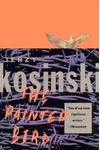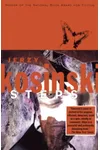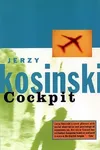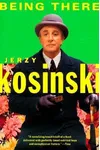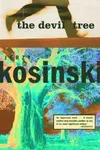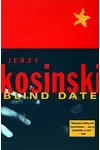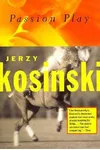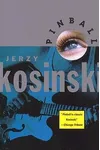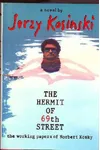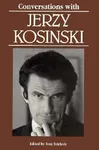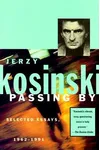Picture a Polish storyteller who turned survival into searing prose—meet Jerzy Kosiński! A Polish-American novelist, Kosiński captivated millions with his haunting tales of identity and humanity, like The Painted Bird and Being There. His journey from World War II survivor to literary icon is as gripping as his books, blending raw emotion with sharp satire.
Born in Łódź, Poland, Kosiński’s life was shaped by chaos and resilience, making his work a window into the human spirit. Ready to dive into his world? Let’s explore the man behind the stories!
The Making of Jerzy Kosiński
Born Józef Lewinkopf on June 14, 1933, Kosiński grew up in Łódź, Poland, under the shadow of World War II. As a Jewish child, he survived the Holocaust by hiding with a Catholic family, using a forged baptismal certificate and the name Jerzy Kosiński. This harrowing experience fueled his later works. After the war, he earned degrees in history and political science at the University of Łódź, then emigrated to the U.S. in 1957, teaching himself English and forging a path to literary fame.
Settling in New York, Kosiński’s early nonfiction, published under the pseudonym Joseph Novak, explored Soviet life. But fiction was his true calling, where he blended his past with imagination, crafting stories that resonated worldwide.
Jerzy Kosiński’s Unforgettable Stories
Kosiński’s debut novel, The Painted Bird (1965), is a gut-punch of a book. Following a boy wandering war-torn Eastern Europe, it’s a raw, fictional take on survival, mistaken by many as autobiography. Critics like Elie Wiesel praised its 'sincerity and sensitivity,' and it won France’s Prix du Meilleur Livre Étranger. Its vivid imagery and dark themes cemented Kosiński’s reputation.
Steps (1968), a collection of eerie vignettes, snagged the National Book Award for Fiction. Its stark, allegorical style, lauded by David Foster Wallace, explores power and alienation. Then came Being There (1970), a biting satire about Chance, a simple gardener mistaken for a sage. Adapted into an Oscar-winning film starring Peter Sellers, it showcased Kosiński’s knack for blending humor with social critique. Later works like Pinball (1982), written for friend George Harrison, kept his provocative edge.
Kosiński’s style—sparse, surreal, and unflinching—tackles identity, cruelty, and society’s absurdities. His outsider perspective, shaped by war and displacement, gives his novels a timeless, universal bite.
Why Jerzy Kosiński Matters
Kosiński’s work reshaped Holocaust literature and modern fiction, offering unflinching looks at human nature. The Painted Bird was once a staple in Holocaust studies, sparking debates about memory and fiction. His satire in Being There still resonates, poking fun at media and politics. Despite controversies over authenticity and plagiarism—later debunked—his vision remained consistent, as publisher Terence Blacker noted.
Kosiński’s life was as bold as his books. A media darling, he appeared on The Tonight Show, posed for Annie Leibovitz, and acted in Reds. His tragic suicide in 1991, amid health struggles, only deepened his enigma. Today, his stories inspire readers to question identity and resilience.
- Born: June 14, 1933, Łódź, Poland
- Key Works: The Painted Bird, Steps, Being There
- Awards: National Book Award (1968), Writers Guild of America Award (1979)
- Died: May 3, 1991, New York City
About Jerzy Kosiński
Snag The Painted Bird or Being There and dive into Kosiński’s haunting, witty world! His stories will stick with you long after the last page.
